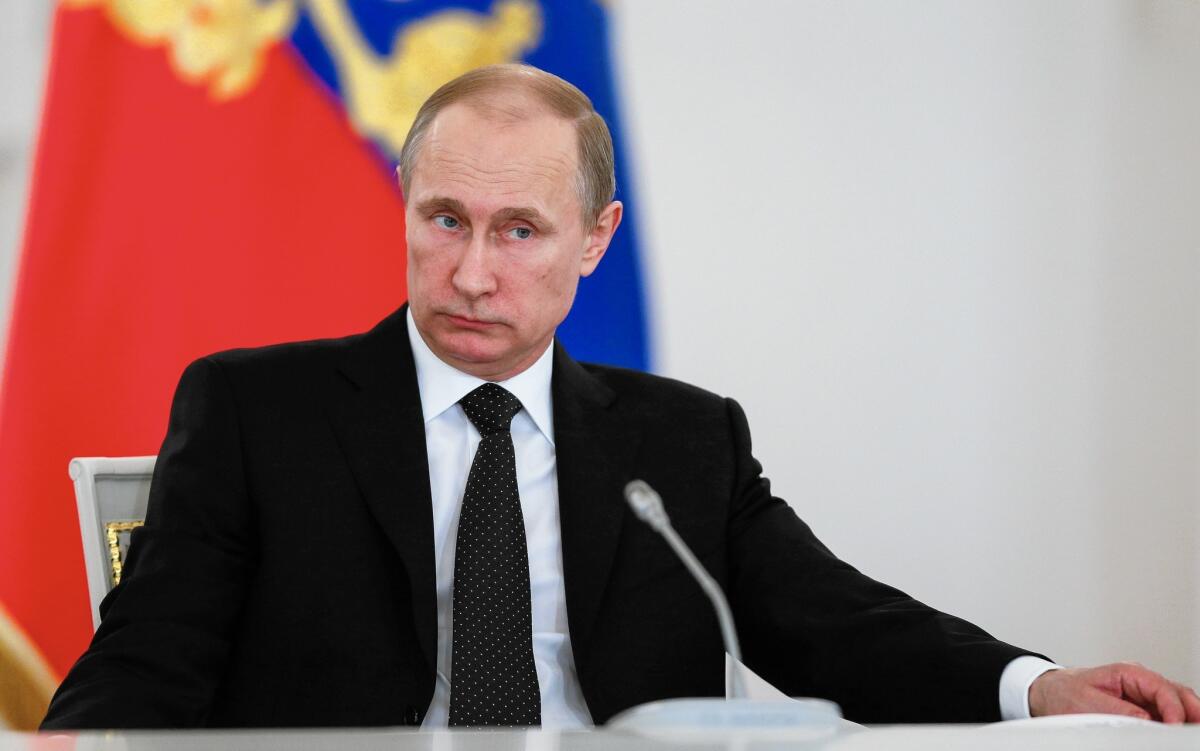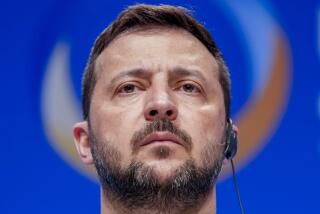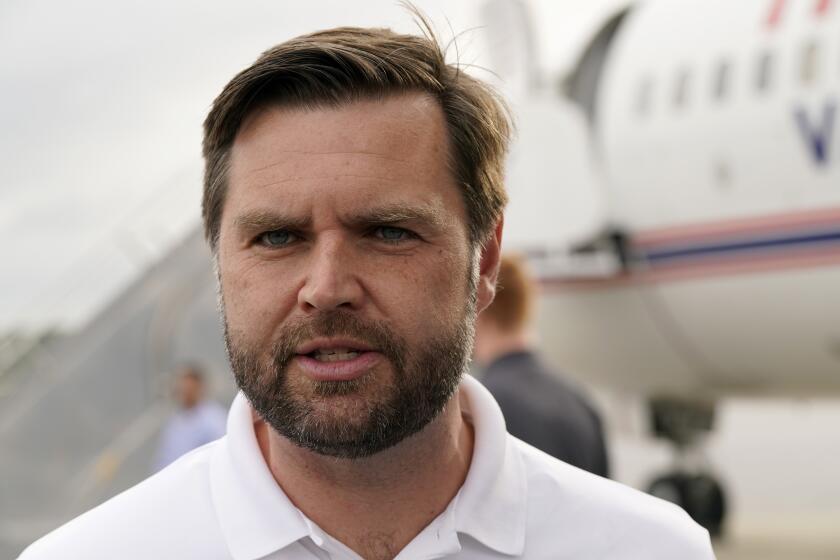Readers React: Snubbing Moscow for Kiev on V-E Day could be a provocation

To the editor: When three former U.S. ambassadors agree on a foreign policy move, we should listen, no matter their political persuasions. (“Kiev, not Moscow, should be the choice for marking V-E Day,” op-ed, March 16)
Steven Pifer, John Herbst and William Taylor are certainly correct to call attention to the 70th anniversary of the Allies’ World War II victory in Europe. They correctly credit the Russians and other peoples of the former Soviet Union for having made great sacrifices in defeating Hitler’s armies. They may even be right that this is not the year for President Obama to go to Moscow to celebrate that mutual victory.
But they are wrong in their policy prescription — to go, instead, to Kiev. This would be a terrible decision by Obama. U.S. relations with Russia are at a historic and dangerous low. Nothing could more antagonize the Russian people, including those who question President Vladimir Putin’s policies in Ukraine, than to snub celebrations in Moscow and join them in Kiev.
The ambassadors recklessly, and needlessly, propose a further step toward crisis in relations with Russia.
Larry T. Caldwell, Beaumont
The writer is a professor of politics emeritus at Occidental College, where he has taught U.S. national security and Russian foreign policy.
..
To the editor: The piece on whether to commemorate the 70th anniversary of Victory in Europe Day in Russia correctly recognizes the heavy price paid by the Soviets fighting Germany.
What is almost always forgotten is that the Soviets were also the aggressors along with Germany in causing the war, going into Finland, the Baltic states and Poland. After helping cause the war by their non-aggression pact treaty with Hitler, they later became “victors” because they switched sides after their ally Germany stabbed them in the back.
After the war, the Soviets were allowed to retain much of the territory that they took as war-triggering acts of aggression.
To portray them as heroes ignores their role as instigators of the war. Both are accurate.
David Goodwin, Los Angeles
Follow the Opinion section on Twitter @latimesopinion and Facebook
More to Read
A cure for the common opinion
Get thought-provoking perspectives with our weekly newsletter.
You may occasionally receive promotional content from the Los Angeles Times.










